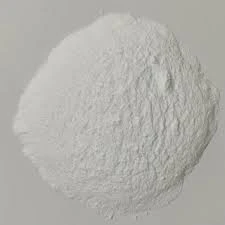Enzyme PQQ A Prominent Player in Cellular Metabolism
Introduction
Enzyme PQQ, or pyrroloquinoline quinone, is a fascinating redox cofactor that has garnered substantial attention in the realms of biochemistry and nutrition. Its unique properties and roles in cellular metabolism have made it a subject of extensive research. This article explores the significance of enzyme PQQ, focusing on its biological functions, health benefits, and potential applications.
What is PQQ?
PQQ is a small quinone compound discovered in the 1970s. Unlike many other coenzymes such as NADH or FADH2, PQQ is not only a cofactor for specific enzymes but also exhibits potent antioxidant properties. It is found in certain foods, such as fermented soybeans, spinach, and green tea, although the levels present in these foods are relatively low.
Biological Functions of PQQ
One of the primary roles of enzyme PQQ is its function as a cofactor for several dehydrogenase enzymes. These enzymes are crucial in the energy-producing pathways within cells, specifically in the oxidation of carbohydrates and amino acids. PQQ facilitates the transfer of electrons, thereby enhancing metabolic efficiency and ATP (adenosine triphosphate) production.
PQQ also plays an important role in cellular communication and signaling. Research shows that it influences the development and maturation of neurons, potentially contributing to neuroprotection and cognitive health. It has been linked to the regulation of gene expression as well, impacting various physiological processes.
enzyme pqq

Health Benefits of PQQ
Supplementation with enzyme PQQ has shown promise in several health areas. Studies suggest that it may improve mitochondrial function, which is critical for energy production and cellular health. Enhanced mitochondrial function is associated with increased longevity and reduced risk of age-related diseases.
Additionally, PQQ has been studied for its potential effects on memory and cognition. Animal studies have indicated that PQQ may enhance learning and memory capabilities, making it a potential candidate for supporting brain health as individuals age. Its antioxidant properties also contribute to reducing oxidative stress, which is implicated in numerous chronic diseases.
Potential Applications
The supplementation of enzyme PQQ has gained traction in the health and wellness industry, with products marketed for improving energy levels, cognitive function, and overall vitality. As research continues, there exists potential for PQQ in therapeutic formulations aimed at combating neurodegenerative diseases such as Alzheimer’s and Parkinson’s.
Conclusion
Enzyme PQQ stands out as a vital cofactor in metabolism with broad-ranging implications for health and wellness. Its antioxidant capabilities and its crucial role in energy production and cellular communication underscore its importance in biological systems. As research progresses, PQQ may offer valuable insights into the development of novel health supplements and therapeutic interventions, paving the way for enhanced metabolic health and cognitive function. As we continue to uncover the mysteries of this enzyme, its full potential within the sphere of human health remains an exciting area of exploration.

